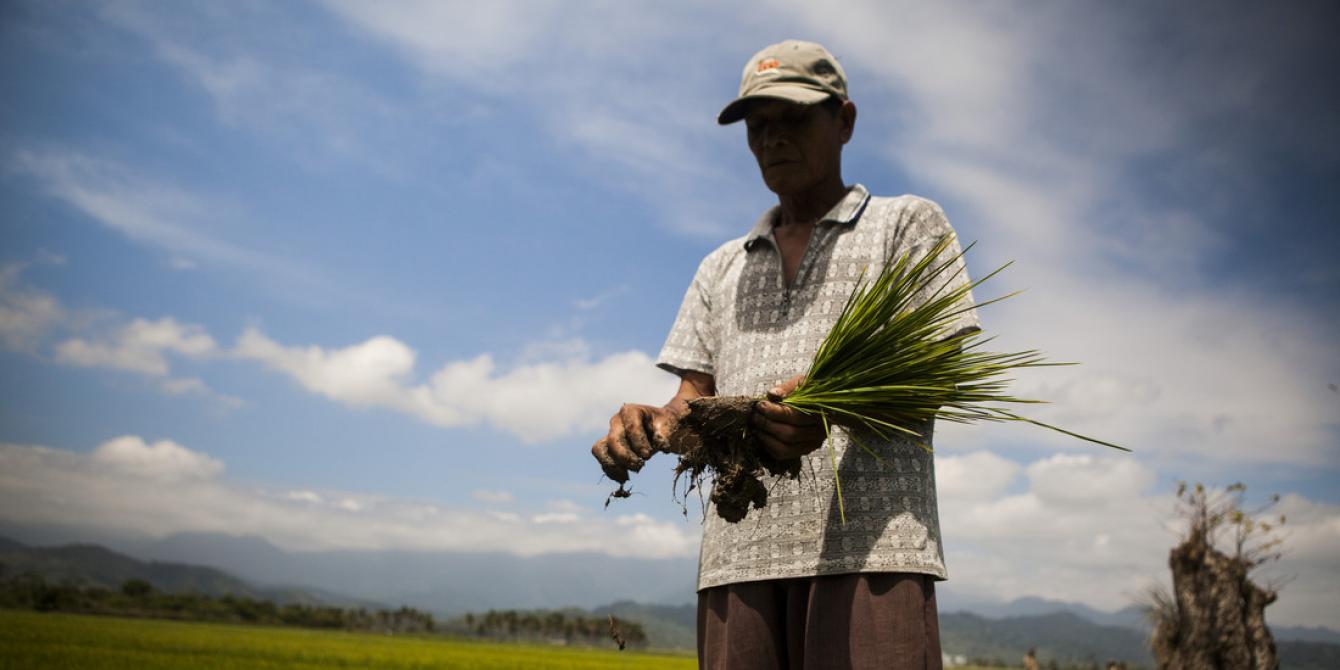DRRM groups, advocates call for safer homes, safer communities; Int’l Day for Disaster Reduction celebration held

QUEZON CITY, METRO MANILA—Over 150 disaster risk reduction and management advocates from various government agencies, academe, communities and civil society organizations gathered together and celebrated the International Day for Disaster Reduction (IDDR) and the ASEAN Day for Disaster Management (ADDM) on Friday at Brgy. Sta. Lucia Covered Court, Novaliches, Quezon City.
With the theme “Ligtas na Tahanan Tungo sa Matatag na Pamilya at Komunidad”, the celebration sought to share good practices of families, communities, local government, schools and civil society organizations (CSOs) on family disaster preparedness; engage participants in building safer homes; and provide a platform for CSOs to raise their calls and influence legislators and decision-makers to respond to these.
Two main calls
The groups highlighted two specific issues that need immediate attention from the government.
“We are calling out the Philippine Government on two specific issues here. First, is to protect and promote the rights of the internally displaced persons (IDPs). Second, is to reduce vulnerabilities of communities to disasters by investing in disaster preparedness, prevention and mitigation, and sustainable livelihood,” Ms. Adelina Sevilla-Alvarez of Center for Community Journalism and Development, said.
According to the Internal Displacement Monitoring Centre’s (IDMC) 2017 Global Report on Internal Displacement, high levels of new displacement by conflict and disaster in 2016 added to the already soaring number of internally displaced people (IDPs). In 2017, a total of 1.2 million new displacements were recorded in the Philippines, 740,000 of which are displaced due to disasters while 466,000 due to conflict and violence. Furthermore, disasters continue to bring about the highest numbers of new displacements each year. Conflict-related displacement, on the other hand, has been on an overall upward trend over the last decade.
Ms. Sevilla-Alvarez added, “We have gained significant milestones in terms of DRRM practice in the Philippines but there is a lot of work to be done. One area where we need to put an extra attention is with the disaster preparedness and disaster prevention and mitigation at the level of family, schools, and communities.”
As a response to the calls of the civil society organizations, Usec. Ricardo B. Jalad, Executive Director of the National Disaster Risk Reduction and Management Council (NDRRMC), said that “Each family is vital in resilience-building of a community. UNISDR Home Safe Home only emphasizes that capacitating families and ensuring their safety, especially in the most vulnerable areas in the Philippines, must be our main priorities as duty-bearers.”
The IDDR - ADDM Celebration was spearheaded by the Office of the Civil Defense, and the National Disaster Risk Reduction and Management Council (NDRRMC) in partnership with the Disaster Risk Reduction Network Philippines (DRRnet-Phils) and its members World Vision, Center for Disaster Preparedness (CDP), Center for Community Journalism and Development (CCJD), Assistance and Cooperation for Resilience and Development (ACCORD), Build Change, Ateneo School of Government and Oxfam.
The event is also the second leg of Barangay 911: Tugon sa Tawag ng Panahon, an awareness-raising campaign of DRRNet-Phils featuring nine (9) calls-to-action towards addressing key issues on the DRRM system in the Philippines. It envisions model communities that represent the aspiration and collective action of Filipinos towards building a resilient nation. The launching also commemorates the International Day of Disaster Reduction and ASEAN Day for Disaster Management.
The Disaster Risk Reduction Network Philippines (DRRNet-Phils), is a national tertiary formation of civil society organizations, people’s organizations, practitioners and advocates adhering to the Hyogo Framework for Action (HFA) and its successor, the Sendai Framework for Disaster Risk Reduction (SFDRR) and implementing community-based disaster risk reduction and management (CBDRRM).
Adelina Sevilla-Alvarez, CCJD
Head, Communications Committee
Disaster Risk Reduction Network Philippines (DRRNet-Phils)
0917 813 7699 | gsevilla.alvarez@gmail.com

 Follow us on Facebook
Follow us on Facebook Instagram
Instagram Follow us on Twitter
Follow us on Twitter LinkedIn
LinkedIn